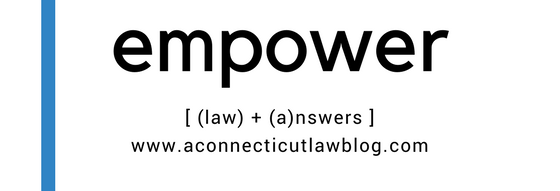What are the statute of limitations in a personal injury case on Connecticut?

When you get hurt – whether it is in a car accident or you are a victim of malpractice – it is a confusing time. What are your rights? Should you get a lawyer? What is fair? Those are questions that run through many people’s heads.
If you’ve been injured in Connecticut, it’s important to be aware of the various statutes of limitation.
A statute of limitation is simply the statutory deadline for filing a lawsuit. After this deadline passes, it’s too late to bring a case against the person who caused your injury.
We want your focus to be on healing, first and foremost. But part of ensuring that you are healed may mean recovering money for future medical expenses. This is why it’s important to talk to a personal injury attorney soon after you’ve been hurt. You don’t want to miss a crucial deadline.
Here are the basic personal injury cases in Connecticut and the deadlines for filing a lawsuit:
Statutes of Limitations for Negligence or Recklessness / Medical Malpractice: 2 years from when an injury is “sustained or discovered,” not to exceed 3 years from the date of the act. Conn. Gen. Stat. Sec. 52-584.
Injuries aren’t always obvious. In a medical malpractice context, you may be injured but not discover the cause until some time has passed. This statute recognizes that situation somewhat by allowing suit to be filed up to 3 years from the date of the negligent or reckless act. However, this is not a 3 year statute of limitation! Once you learn the cause of your injury, you have two years to file suit at the very most. If you discover you were injured by an act that occurred two years and six months ago, you only have six months, and only if you couldn’t have reasonably discovered your injury sooner.
We can’t stress enough that it is very important to speak with an attorney immediately after discovering an injury.
Statute of Limitation for Wrongful Death: 2 years from death, not to exceed 5 years from the date of the act. Conn. Gen. Stat. Sec. 52-555.
This one comes with a big exception for criminal acts like murder. If someone is found legally responsible for causing a death and has been convicted or found not guilty by reason of a mental disease or defect, then the statute of limitation does not apply.
Statute of Limitations for Intentional acts, legal malpractice, and other torts: 3 years. Conn. Gen. Stat. Sec. 52-577.
As I learned in law school, a “tort” is not a delicious dessert. Torts include conduct like trespass and fraud.
Statute of Limitations for Product liability: 3 years, generally speaking. Conn. Gen. Stat. Sec. 52-577a.
There are exceptions to the rule but they are too complicated for the purposes of this post. If you think you have a claim, definitely talk to an attorney about it.
Statute of Limitations for Uninsured/Underinsured Motorist Claims: 3 years, generally speaking. Conn. Gen. Stat. Sec. 38a-336(g)(1)
Again, there are exceptions to the rule and ways to toll (suspend) the statute of limitations. An attorney can evaluate how these laws apply to your case.
It is also very important to know about Connecticut’s Notice laws in personal injury cases.
So there you have it, some common deadlines for filing a lawsuit after an injury. In our experience, many personal injury cases can be resolved without ever filing a lawsuit, and well before the statute of limitation passes. If you’d like to speak with me about your case, please call Ryan at 860-471-8333.
You May Also Like:
